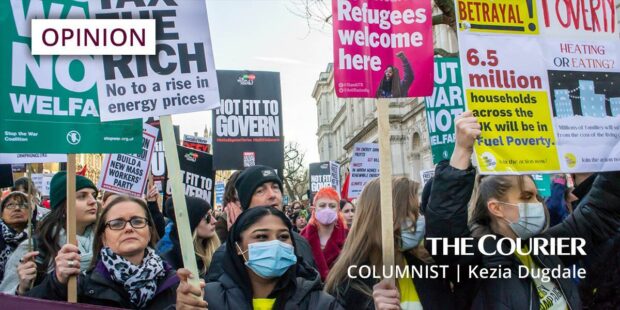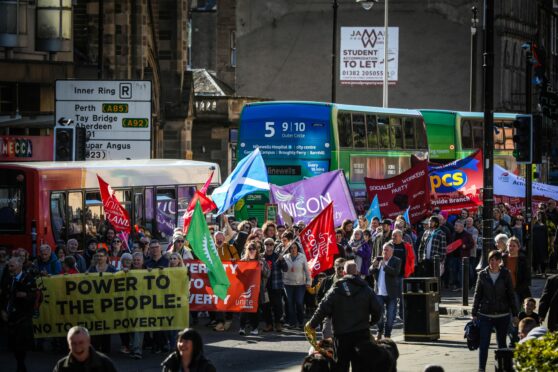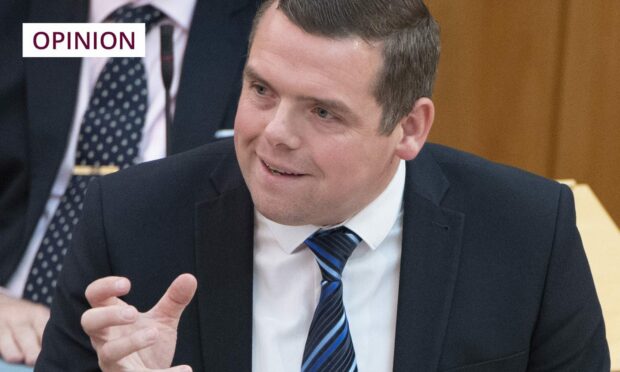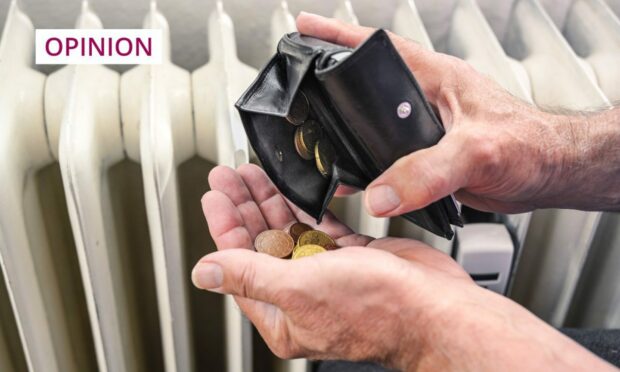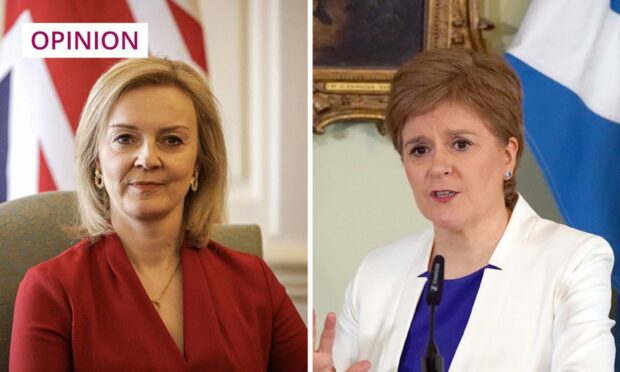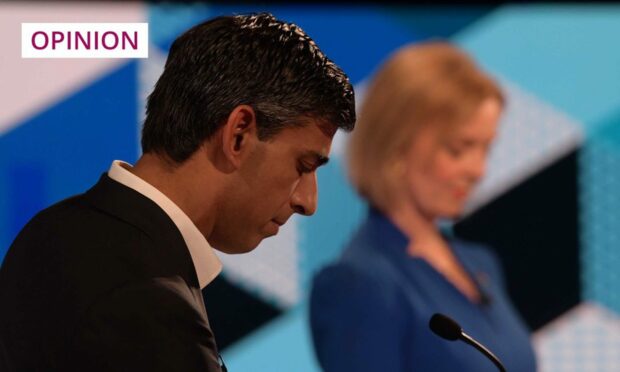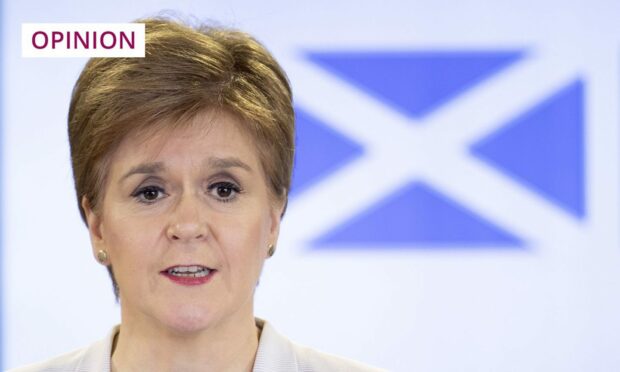We are a mere two years, two months and three days into this decade and there’s been an awful lot to deal with and adapt to.
A global health pandemic, Brexit and now a war on European soil.
And that’s all before we consider the impact of climate change and an increasingly toxic and polarised politics.
It’s a wonder we’re all able to get out of bed each morning.
Each of these issues have enormous and far reaching consequences, affecting trade, global security and international relations.
But I want to take a moment to consider how it’s all affecting living standards and consider whether there’s any chance at all that the poorest and most vulnerable people will be spared the heaviest price of what lies ahead.

Prices are now rising at faster rate than at any point in the last 30 years.
The Bank of England expects inflation to hit 7% this year, although that’s a low ball estimate of the true impact because of the nature of what’s in that “basket of costs” that the Office of National Statistics use to measure it.
If the cost of a T-bone steak, an A class Mercedes and a 20ft yacht stay the same but the price of beans and supermarket’s own chocolate digestives goes up 200%, then it’s obvious who spiralling inflation is really hurting.
Cost of living rises will impact poorest families most
Rising energy prices are something that’s affecting us all but far from equally.
It’s a third more expensive to fill up my car than it was two years ago when I bought it.
The price cap means I’ll be paying £700 more this year for my central heating than I did last year. But at least I can still afford to turn it on when I need it.
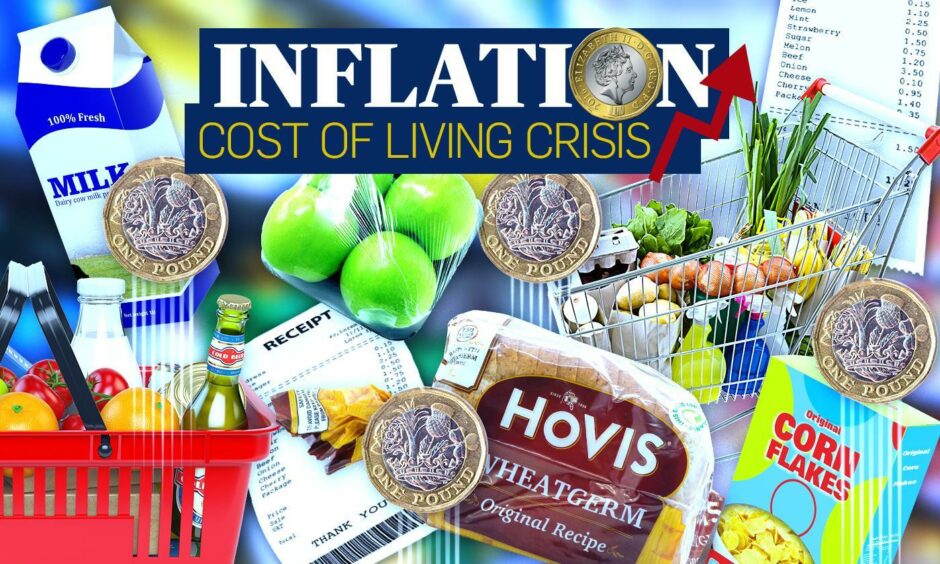
I’m billed monthly, not firing 50 pences into extortionate pre-paid meters.
The poorest families are spending a far greater proportion of their income on heating and when everything else is rising bar wages, something’s got to give.
And depressingly, the situation is unquestionably going to get worse.
Ukraine crisis will have financial impact
The crisis in Ukraine will have a knock on impact on wholesale gas prices across Europe, particularly as the Germans have postponed Nord Stream2 – a proposed gas pipeline that would have doubled the amount of Russian gas being pumped into Europe.
As war broke out in the Ukraine, Western governments were initially reluctant to take interventions which, while very damaging for Russia, might have had negative implications at home.
The German Chancellor has absolutely done the right thing in postponing Nord Stream 2, but he’s done it in the full knowledge that German citizens will pay a higher price to heat their houses as a consequence.
Equally here in the UK, there was a reluctance to curtail Swift, the financial clearance system, because it would unquestionably have a kick back on the City.
But we’ve done it. At least in part.
These decisions from European leaders show us how serious the threat from Russia is.
But it also exposes the need for an equally serious domestic consideration of who in reality will pay the price of these economic decisions.
Cost of living set to rise further
On April 1 tax credits and benefits go up by just 3%, well short of inflation by any measure.
National insurance will also go up by 1.25p in the pound in an attempt to pay down the cost of government borrowing spent on the Covid-19 pandemic.
Why is there a cost of living crisis in one of the richest nations on Earth?
Because of extreme inequality.
Regardless of a few feeble sops, the Tories are making it worse.
Last night, they gave bankers a tax cut worth £1bn a year.
While raising NIC for ordinary workers.— George Monbiot (@GeorgeMonbiot) February 3, 2022
That’s all before we consider the cost of climate change and my, doesn’t COP26 feel like a long time ago?
A new report out today from the Resolution Foundation shows that the proposed plans to tackle climate change will largely benefit wealthier families and punish the poorest.
For example, if I want to tackle the rising cost of my petrol, I could replace my car with an electric one.
How many care workers have that choice?
I could also charge it at home because I don’t live in a flat.
But 51% percent of renters couldn’t dream of plugging in a fancy new electric car to capitalise on the best tariff, while 81% of people who own their properties can.
When it comes to heating my house, I could upgrade my boiler now because I’m not at the whim of a private landlord or the timescale of a large-scale renovation programme run by a council or other social landlord.
We could act, but will we?
The most depressing thing about all of this is that we know how to stop this aching inequality from getting even worse.
It needs massive public and private investment in the infrastructure which will both save families money well into the future and reduce emissions from home heating and transport.
It’s so depressing because it feels so unlikely to happen.
And as consequence, this decade will continue to get darker, colder and even more expensive, particularly for those in desperate need of better days ahead.
